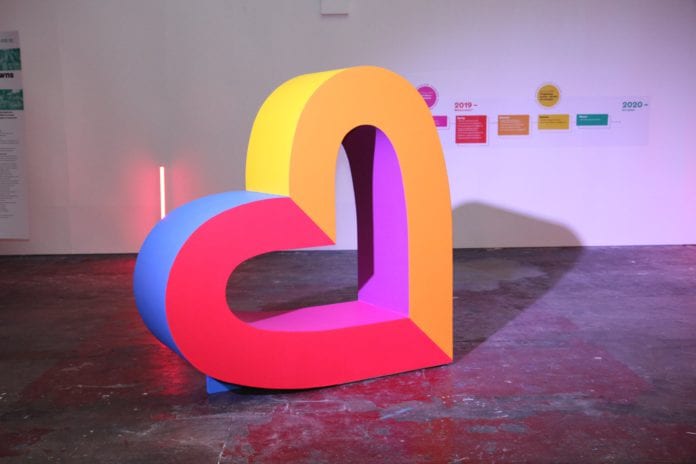As Galway 2020 limbers up for the final run to the year of the European Capital of Culture they played host to a delegation from our partner city in Croatia this week.
Rijeka 2020 and Galway 2020 will both share the title of Capital of Culture next year, and organisers and artists in the two port cities have been buildings ties in the run up to the event.
With its coastal views, seafood cuisine and bohemian flair, Rijeka shares many affinities with Galway that both are eager to highlight.
This week a delegation from Rijeka visited Galway at the tail end of Statehood Day celebrations – commemorating Croatia’s 1991 historic declaration of independence from the former socialist state of Yugoslavia.
Following an inaugural event at EPIC (Irish Emigration Museum) in Dublin, the group made their way to the west coast for a day of music and other activities on Thursday.
The delegation included Croatia’s Ambassador to Ireland H.E. Ivan Mašina, Mayor of Rijeka Vojko Obersnel, University of Rijeka Rector Snježana Prijić Samaržij and Tourist Board Director Petar Škarpa.
Rijeka 2020’s Partnership & Communications Director Irena Kregar Šegota and Partnerships & Protocol Coordinator Dorian Celcer are also among the delegation, bringing with them a trio of traditional Croatian musicians.
The trio consisting of Zoran Majstorović on lute and Zlatko Volarić and Zlatka Jurković on sopila (a traditional wind instrument) performed alongside Galway performers Aindrias de Staic and Moisés Mas García, exploring musical connections across both cultures.
Diversity is in fact the theme of Rijeka 2020, and the impetus behind ‘27 Neighbourhoods’ – a collaborative network which pairs 27 neighbourhoods in Rijeka (and its environs) with 27 communities in other EU member states.
27 Neighbourhoods participants from the seaside village of Lovran met with local organisers from the corresponding Galway 2020 community-based Small Towns Big Ideas programme to brainstorm ideas for the future.
The histories of Ireland and Croatia have traversed in unexpected ways over time.
Irish involvement in Croatian history dates back to the Napoleonic Wars, when Westmeath-born Laval Nugent drove Napoleon’s forces out of the disputed territories now known as Croatia.
Nugent was a careerist soldier with ambivalent allegiances, but Croatia occupied a special place in his heart.
He would later show wholehearted support for Ban Josip Jelačić’s attempts to claim autonomy from Austria and Hungary.
In his private life, Nugent amassed a vast collection of artworks and a total of six castles, one of which, Trsat Castle, he converted into a museum, opening its magnificent grounds to Rijeka residents in the early 1800s.
An exhibition on the life of the “warrior and collector” will launched in the Hardiman Research Building, NUI Galway on Thursday.











